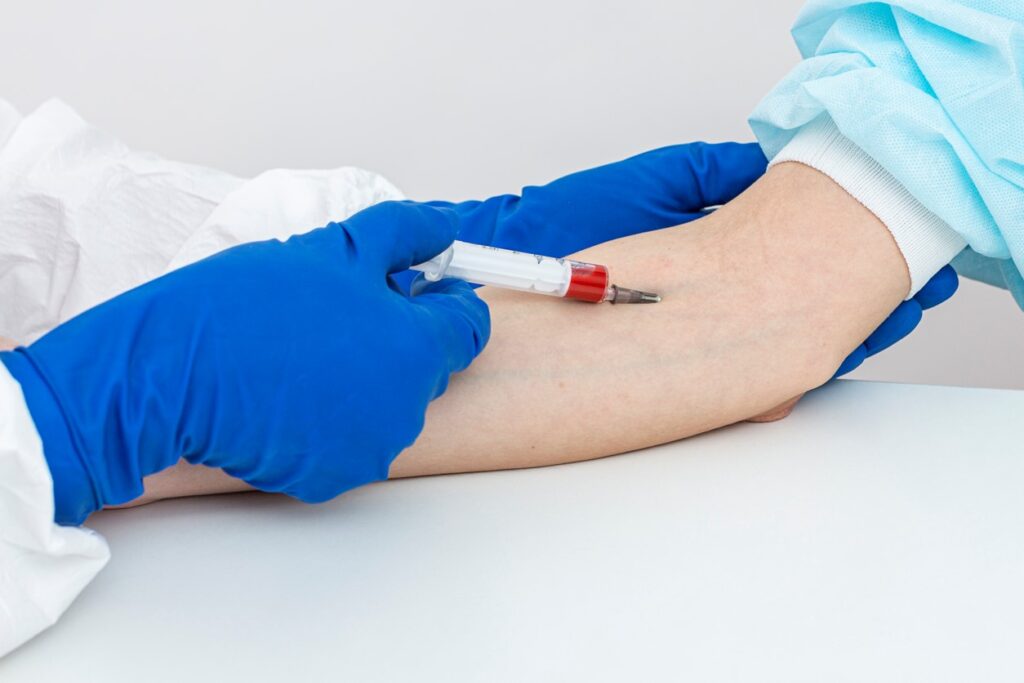What Is a Procalcitonin Test?
The procalcitonin test is a blood test that helps doctors check for serious infections. Often, it is used to find out if you have a bacterial infection or sepsis. Sepsis is a life-threatening reaction to infection. Because the procalcitonin test measures a substance called procalcitonin in your blood, it can help doctors decide if you need antibiotics or other treatments.
Why Is the Procalcitonin Test Important?
Doctors use the procalcitonin test to spot infections early. For example, high procalcitonin levels can show that your body is fighting a serious bacterial infection. This test is also important for sepsis diagnosis. Early treatment can save lives, so the test helps doctors act quickly. In addition, the procalcitonin blood test can help avoid unnecessary antibiotics if your infection is not bacterial.
Symptoms and Situations When a Procalcitonin Test Is Recommended
Doctors may suggest a procalcitonin test if you have signs of a serious infection. These signs can include:High fever or chillsFast heartbeatRapid breathingConfusion or trouble thinkingLow blood pressure
Sometimes, the test is used if you are very sick in the hospital. For instance, if you have pneumonia or are at risk for sepsis, your doctor may order this test. In some cases, it helps check if your infection is getting better or worse.
How the Procalcitonin Test Is Performed
The procalcitonin blood test is simple and quick. First, a healthcare worker cleans your arm. Next, they use a small needle to take a sample of your blood. The process usually takes only a few minutes. Afterward, your blood is sent to a lab for testing. Most people can return to normal activities right away.
Understanding Test Results and What They Mean
Procalcitonin levels help doctors understand how serious your infection is. Here is what your results may mean:Low procalcitonin levels: You likely do not have a serious bacterial infection.High procalcitonin levels: You may have a severe bacterial infection or sepsis.
However, other factors can affect your results. For example, some injuries or surgeries can raise procalcitonin levels. Therefore, your doctor will look at your symptoms and other tests before making a diagnosis.
Risks and Safety of the Procalcitonin Test
The procalcitonin test is very safe. Like any blood test, there are small risks. You might feel a little pain or see a small bruise where the needle went in. Rarely, some people may feel dizzy or faint. However, serious problems are very uncommon. If you have concerns, talk to your healthcare provider before the test.
Frequently Asked Questions About the Procalcitonin Test
Is the procalcitonin test painful? Most people feel only a quick pinch during the blood draw.How long do results take? In many hospitals, results are ready within a few hours.Can the test show all types of infections? No, it mainly helps find serious bacterial infections and sepsis.Will I always need antibiotics if my procalcitonin is high? Not always. Your doctor will consider all your symptoms and other test results.
Prevention and Lifestyle Tips Related to Infections and Sepsis
While the procalcitonin test helps find infections, it is best to prevent them when possible. Here are some tips:Wash your hands often with soap and waterKeep cuts and wounds clean and coveredStay up to date with vaccinesSee a doctor if you feel very sick or have signs of infectionFollow your doctor’s advice about antibiotics
By taking these steps, you can lower your risk of serious infections and sepsis.
Conclusion
The procalcitonin test is a helpful tool for finding serious infections and guiding treatment. Because it gives quick results, doctors can act fast to help you. If you have questions or think you may need this test, consult your healthcare provider for personalized advice about the procalcitonin test.


